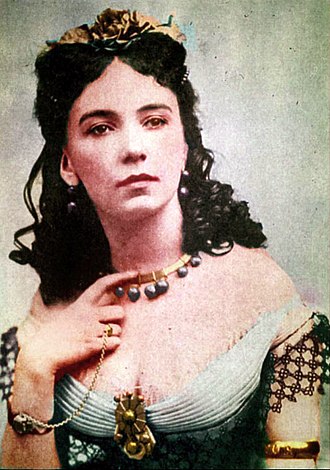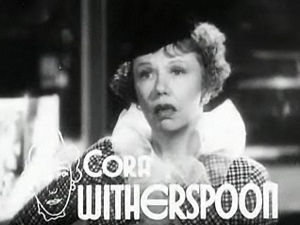Discover Your Roots
SIGN UPDiscover Your Roots
SIGN UPCora is a captivating female name of Greek origin, meaning "Heart" and "Maiden." In Greek mythology, the heart is often associated with deep emotions and love, while maiden signifies purity and youthfulness. The name Cora has a rich history and has been used as a given name and surname. It has also been associated with various places, including towns in the United States and an ancient town in Italy. Additionally, Cora has been used in different contexts, such as in science, with references to a genus of lichens and damselflies, as well as in music, with an alternative spelling for the West African musical instrument, Kora. Its versatility is further demonstrated through its use in retail, opera, restaurants, and even as a rocket name.

Cora Schumacher, also known as Cora-Caroline Brinkmann, is a well-known German television and media personality. She gained public attention through her marriage to racing driver Ralf Schumacher and has been featured in various German television programs such as Top of the Pops, Marienhof, Let's Dance, and Alarm für Cobra 11 – Die Autobahnpolizei. Notably, she has graced the covers of prestigious magazines including GQ, Maxim, and Playboy. Born on December 27, 1976, in Langenfeld, Rhineland, she is the daughter of Gerd Brinkmann, a petrol station owner, and Ingrid Brinkmann. Cora Schumacher initially pursued a career as a communications specialist and also worked as a model. Her foray into racing began in 2004, and she experienced both successes and challenges throughout her racing career. Schumacher's diverse career also includes voice dubbing for characters in the animated film Cars and participation in the popular dance competition Let's Dance. Her involvement in motorsport and media has continued to captivate audiences, making her a prominent figure in the German entertainment industry.

Cora Pearl, also known as Eliza Emma Crouch, was an English courtesan who rose to fame during the Second French Empire. Born in December 1836 in Plymouth, England, she faced a tumultuous childhood marked by family upheavals and a traumatic experience at a young age. After moving to London, she became associated with Robert Bignell, the owner of a notorious pleasure establishment. However, she aspired to a higher standard of living and sought to become the kept woman of wealthy lovers, ultimately adopting the pseudonym Cora Pearl. In Paris, she honed her skills under the guidance of a procurer and established herself as a renowned courtesan. Her romantic liaisons included prominent figures such as Victor Masséna, Duke du Rivoli, and Prince Achille Murat. Pearl's lavish lifestyle, which included opulent accommodations, fine jewelry, and a love for horse riding, captivated the elite society of her time. Despite facing scrutiny and scandal, she left a lasting legacy as a symbol of extravagance and audacity in the demimonde of 19th-century France.

Cora Witherspoon (1890-1957) was a prominent American stage and film character actress known for her nearly half-century career. With roots in theatre, her entry into motion pictures in the early 1930s allowed her to carve a niche playing haughty society women or harridan housewives. Witherspoon's talent and versatility shone through in roles such as Princess Lina in Ferenc Molnár's play "Olympia" and as Agatha Sousè in the film "The Bank Dick." Born in New Orleans, Witherspoon's upbringing was marked by the loss of her parents, leading to her being raised in part by her older sister. She made her professional stage debut in 1905 and went on to have a successful stage career, appearing in numerous Broadway plays over several decades. In addition to her stage work, Witherspoon also had a prolific career in Hollywood, appearing in supporting roles in various films for nearly 25 years. Her talent extended to television and radio, where she made notable appearances. Witherspoon's life was not without its challenges, as she struggled with addiction, as noted in Tennessee Williams' autobiography. She passed away in 1957 at the age of 67 in Las Cruces, New Mexico, leaving behind a rich legacy in the entertainment industry.

Cora Cross is a beloved fictional character portrayed by Ann Mitchell in the BBC soap opera EastEnders. She is the mother of Tanya Branning, Rainie Cross, and Ava Hartman, as well as the grandmother of Lauren and Abi Branning. Cora is known for her brash and outspoken attitude, often described as an archetypal East End matriarch. Her return to EastEnders was highly anticipated, with executive producer Bryan Kirkwood praising Ann Mitchell as one of the show's greats. Cora's storylines have involved family dynamics, struggles with neighbors, and her hidden past, adding depth to her character. Throughout the series, Cora's relationships and interactions with her family members, including her granddaughters and daughter Tanya, have been central to her narrative. With her compelling portrayal and complex storylines, Cora has become a memorable and cherished character on the show. Mitchell's compelling performance has garnered praise, with fans and critics alike appreciating her dedication to the role.

Cora Diamond, born in 1937, is an American philosopher renowned for her contributions to moral philosophy, animal ethics, political philosophy, philosophy of language, and philosophy and literature. She is particularly known for her work on the thought of Ludwig Wittgenstein, Gottlob Frege, and Elizabeth Anscombe. Diamond holds the esteemed title of Kenan Professor of Philosophy Emerita at the University of Virginia. Her academic journey began at Swarthmore College, where she earned her Bachelor of Arts degree in 1957, followed by a Bachelor of Philosophy degree from St. Hugh's College, Oxford in 1961. Diamond's career encompassed teaching positions at various institutions before settling at the University of Virginia in 1971. Notably, Diamond's influential writings include the critically acclaimed articles "What Nonsense Might Be," which challenges the logical positivists' views on nonsense, and "Eating Meat and Eating People," which delves into contemporary attitudes towards animal rights. Her expertise in both early and late Wittgensteinian philosophy has positioned her as a key figure in the New Wittgensteinian approach. Diamond has also edited and contributed to various essay collections and publications, solidifying her impact in the field of philosophy.
All images displayed on this page are sourced from Wikipedia or Wikimedia Commons.We use these images under their respective Creative Commons or public domain licenses. Wherever applicable, author attributions and license information are provided. If you believe an image is used incorrectly or outside its license terms, please contact us so that we can review and correct the issue.